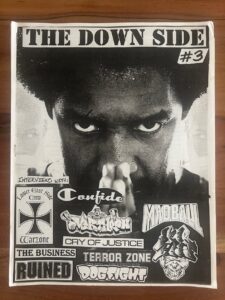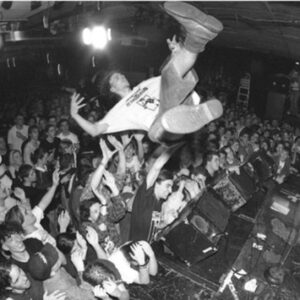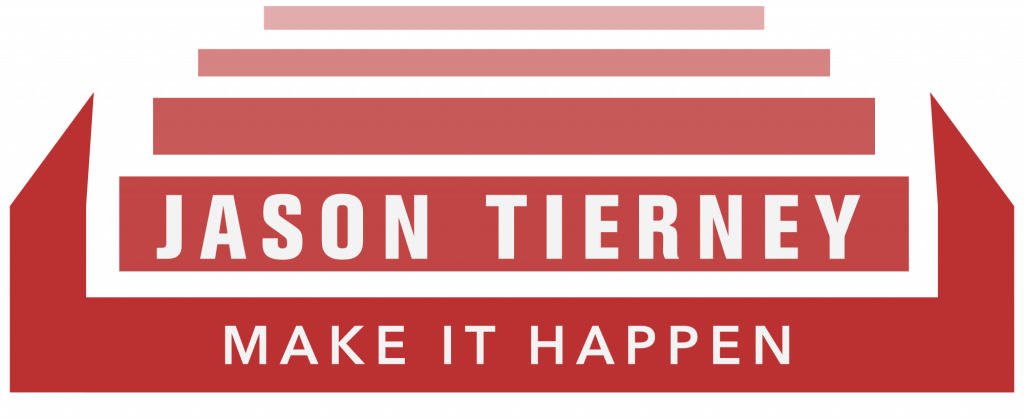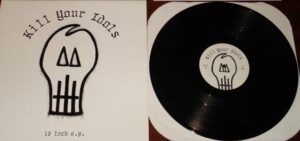In my turbulent teen years, music wasn’t just background noise; it was the life’s blood that surged through my veins. It fueled skateboarding sessions and soundtracked the fistfights of kinetic self-discovery. Those bands weren’t just names on record covers; they were the raw energy that helped define my very existence. They also served as the bedrock for my career in business. Roll with me on a quick stroll from graffiti-tagged nightclubs to wood-paneled boardrooms.
I wanted to hang out with my favorite bands and get free music, so I started a zine. For the uninitiated whose musical interests lean toward the I-like-every-kind-of-music end of the spectrum, a zine is a DIY magazine. Forgive me Father for I have jargoned – DIY is an acronym for “Do It Yourself.”
I flipped through records I liked, put pen to paper, and snail-mailed the contact addresses listed on the lyric sheet with requests for interviews for the premier issue of The Down Side zine. Weeks later I got a couple phone calls from people at the labels, at least for the few bands that had labels. They offered to schedule phone interviews with the bands. I don’t think you get it—some of my favorite bands responsible for music that motivated me, uplifted me, and kept me company during dark days and darker nights—were going to call me to talk. This is decades before celebs would drop in your DMs or musicians and actors whored themselves out on Cameo for less than a tank of gas.
Letters arrived in the mail too. They were sent directly by band members. See, most of these bands also embraced DIY ethics; they recorded, printed, and promoted their own music. They agreed to interviews with the request that I mail them the questions. I was holding tactile evidence that my voice and passion mattered.
“We were off to the races!”
I didn’t hesitate, nor did I send the standard questions about the band members’ names and other blasé stuff that read like a Wendy’s job application. Nope, I quickly complied, sending handwritten interview questions centered on things I wanted to know about the bands, stuff like:
What’s been your biggest disappointment as a band?
Which of your songs mean the most to you and why?
Who would win an arm-wrestling match between your bass player and Nikki Sixx of Motley Crue?
 Many responses included tapes, stickers, or shirts. On a few occasions, bands sent ultra-rare pressings of their soon-to-be released records. To add some normie perspective, this would be like Vivaldi personally mailing you the sheet music for The Four Seasons or Taylor Swift sending you her upcoming album on a personalized thumb drive along with a handwritten note two month before anyone else heard it. Can you even imagine?
Many responses included tapes, stickers, or shirts. On a few occasions, bands sent ultra-rare pressings of their soon-to-be released records. To add some normie perspective, this would be like Vivaldi personally mailing you the sheet music for The Four Seasons or Taylor Swift sending you her upcoming album on a personalized thumb drive along with a handwritten note two month before anyone else heard it. Can you even imagine?
Around this same time, I sent letters to other zines offering to trade ads with the ones on my same level: e.g. a couple of issues, photocopied pages, similar bands. I also pinged the more polished publications, the ones with computer-formatted layouts, glossy covers, and larger distribution reach. Sometimes you gotta swing for the fences, so I offered to discount ad space if they’d also run my ad in their zine. What is a 50% discount on a free ad, you’re wondering? Easy, $100. Most would pay it and run my ad in their punk rock version of TIME magazine with print runs exceeding 2,000 copies.
“2,000 copies? That ain’t shit, Jason!” You’re right. It’s not if you’re thinking in the scope of the day’s biggest music rags like Rolling Stone, Hit Parader, or Tiger Beat. That wasn’t my flavor though. Nor were their readers my audience. Consider this: You are in your parents’ garage belting out jams derivative of your favorite band. What’s more likely, getting 2,000 other kids like you to spend 10 bucks on your record or cutting through the good ol’ boys douchebag club and getting your demo in the hands of David Geffen? Know your audience and carve your lane. The riches are in the niches, bitches.
YOU HAVE TO FIND YOUR WHY!
But that was never why I did it, and financial success was not the primary driver for me then or today. There’s gotta be more to it or else you’ll quit when the times get tough, rejection racks up, and the ducats are dwindling. As your boy Simon Sinek says, you have to find your why.
It was the golden age of zines, and options were aplenty. Some of them were quite good, featuring nuanced album reviews by reviewers with developed voices. Others were cringey with unimaginative layouts laden accompanied by half-baked political rants and naïve treatises on animal rights. The common bonds were commitments to the punk DIY ethos and a yearning for more readers. It didn’t make sense to further segment an already tiny group of prospective readers. Why compete? Why not engage other zines for our mutual benefit? Instead of competing with them, I opted to trade 20 copies and distribute their zines. This helped get The Down Side to a wider audience while expanding my constantly growing personal zine library. It also left me with stacks of zines to sell via mailorder or at local hardcore shows. I was now in the distribution business. Why stop with zines?
From the stage, touring bands would dedicate songs to my entrepreneurial DIYism. Some nights I offered to buy 10-20 records from the bands. Oftentimes, they’d peruse my hardcore bazaar and end up trading some of my stuff for theirs. This helped ensure a revolving selection of new records for kids at later shows or via The Down Side mail order.
STRIVE FOR A WIN-WIN
Keeping my ear to the streets was paramount so I knew which bands were breaking up, whose members were starting side projects, and who was beefing with who. This helped cultivate compelling content for the zine, and it guaranteed a supply of the hottest records while avoiding an overstock of duds. So many people were introduced to new bands via my traveling roadshow—and a few of those bands went on to realize critical acclaim and financial success. I couldn’t keep enough H2O or Dropkick Murphys 7” records in stock and the Kill Your Idols 10” was a hit, but every once in a while I’d get stuck with a tower of Stormcore CDs, the aural equivalent of ostrich dung. What my southside shotgun apartment lacked in character (and furniture), no one can ever say there was a shortage of makeshift coasters.
But I can’t underscore enough how much punk hardcore’s inherent double middle fingers to establishment and conformity meant to me then. And before you think that was mere useful indiscretion, it has calcified in my DNA over the past ~35 years into a more refined, less offensive, and more effective contrarianism. When I meet with a client and they insist “That’s not the way it’s done” or “We don’t do it that way”, I instinctively ask why. The motto has evolved from “F*CK AUTHORITY!” to “Let’s look at why the status quo exists, identify its deficiencies (if any), and work toward workable solutions for continual improvement.”
Much of the money from the distro and zine sales were recycled back into the fledgling business: more records, more shirts, more collectible and coveted colored vinyl which is the punk equivalent to rare Jordans for sneakerheads. The rest was funneled into cheap malt liquor. That’s another story for another day…
Penpal missives interspersed with occasional phone calls were cool ways to interact with my favorite bands. Sometimes they’d include actual photographs from their shows so I could include the pics in their interview layouts. Traveling to the northeast in my unreliable Ford Tempo on my record store assistant manager budget wasn’t in the cards, and that was the only way I was going to live my dream to see bands like E-Town Concrete, Silent Majority, or Madball. If you build a baseball field in a cornfield, Babe Ruth will show up, so why not start booking bands? Have them come to me. Eureka.
The time to add booking agent to the diversifying portfolio had arrived. This enabled me to further solidify those relationships, save money on shipping by buying their merch in person, make some cash at the door, further establish TDS as the go-to, and of greatest importance to me—share this communal experience with my tribe when seeing our favorite bands together. That is the definition of a “win-win.”
BE BOLD. BE DIFFERENT. IT’S WHO WE ARE.
 I actually made a few bucks, nothing to retire on. But I was Elon Musk-rich with valuable contacts and meaningful relationships. So many friendships were spawned. Many of the people I met on that journey are still a part of my life 30 years later. Some of the posse members sold out, ahem, I mean they got legitimate careers. Their career paths led them to become cops, chiropractors, consultants, rock stars, podcasters, and everything in between.
I actually made a few bucks, nothing to retire on. But I was Elon Musk-rich with valuable contacts and meaningful relationships. So many friendships were spawned. Many of the people I met on that journey are still a part of my life 30 years later. Some of the posse members sold out, ahem, I mean they got legitimate careers. Their career paths led them to become cops, chiropractors, consultants, rock stars, podcasters, and everything in between.
While stage diving isn’t on our nightly schedules anymore, so much of what we learned in those mosh pits is in our hearts today. It’s tattooed on our skin. It’s on our Spotify playlists, and it’s evident in the straightforward way we conduct business. We impart it onto our kids. It’s in our willingness to get creative, get our hands dirty, and create the world we want to live in. Be bold. Be different. It’s who we are. This is a lifestyle, not a trend.
Here’s a Spotify playlist of seminal bands from that brief window of time as well as a few other jams that were on repeat during that period. See you in the pit or the next conference (or both)…
Stay informed about Jason’s books, media, & adventures





